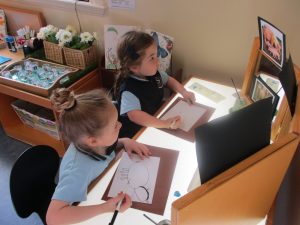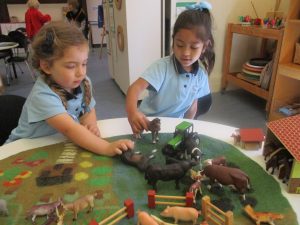Prior Knowledge

In preparation for our excursion to the Collingwood Children’s Farm in November, the children have been making predictions about what they might see and do while they are at the farm. We asked the children which animals they are likely to see. Where on the farm do these animals live? What do they eat? What do they drink? Who is in their family?
We have been using visual images of farm animals as inspiration and have drawn the animals in detail. Prior knowledge gives us an idea of what the children know already. It is not until we reflect on the excursion when we return to school or while we are at the farm that we are able to see the learning that has taken place.

The children draw animals in preparation for their excursion to the Collingwood Children’s Farm in November.
The children have been playing with our mini farm animals. This type of play supports language development. The children are imagining, and while doing so are talking out loud and using their expanding vocabulary. We created a farm scene with our big red barn, farm animals, and fences. We are able to hear the children using dialogue between the animals and each other. I noticed the children re-enacting stories we have read about the animals. They were using the words that they have heard in stories, not necessarily words they would use in daily life.
Small world play gives children an opportunity to use their imaginations.
“Imagination is more important than knowledge. Knowledge is limited. Imagination encircles the world.” – Benjamin Franklin.



